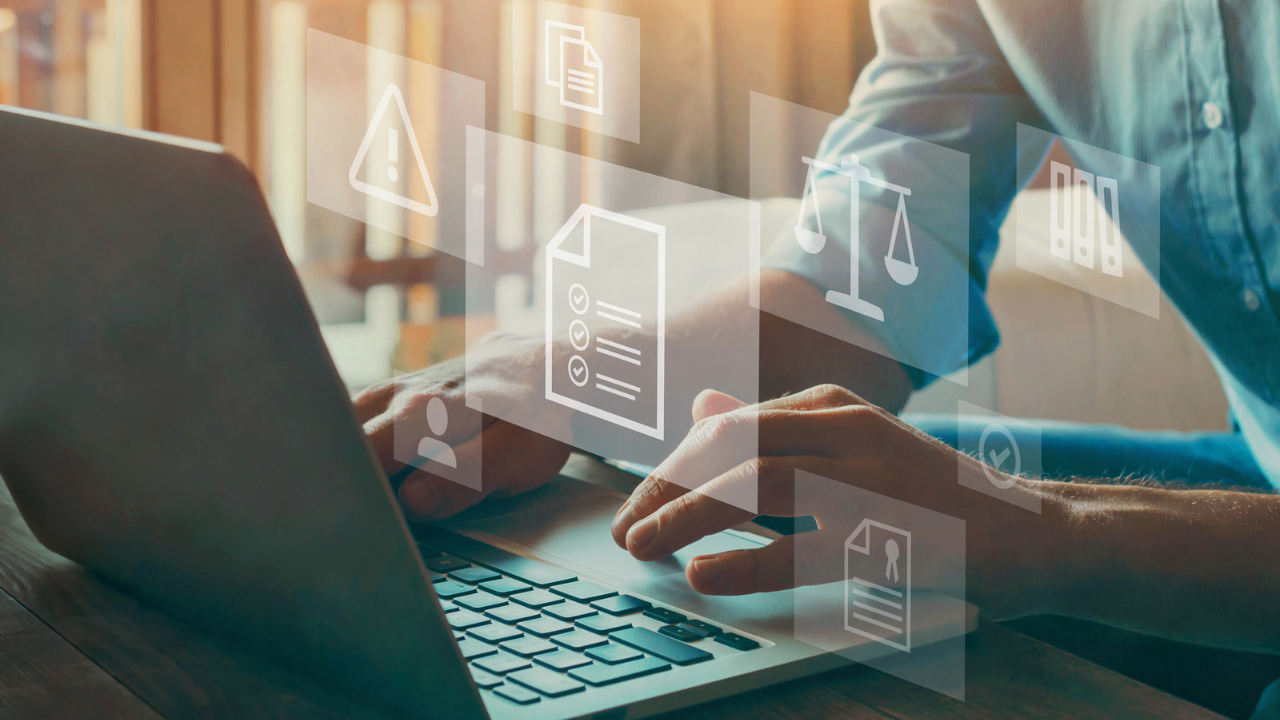Could you live without your credit cards and BNPL?
Mar 06, 2023
By: David Berry, CEO of Way Forward
Way Forward is a charity that's been established to help people who are in medium to long-term financial difficulty. We help work out a realistic budget, negotiate directly with creditors, and then take care of the payments. We try to make it as simple and easy as possible for people to get themselves back on track.
BNPL products along with credit cards have fast become integral to how Australians shop and manage their finances. For better or worse, they are essentials of modern-day finance for people and businesses.

However, for anyone having money troubles, the use of BNPL or credit cards will never be a safe and effective stop gap. If you’re short on cash and feeling desperate for access to finances, the answer is rarely credit.
So, what is the answer? 🤔
Living without credit cards and BNPL

At Way Forward, we work with people in financial hardship who are in an inescapable debt spiral, which has been caused by borrowing more money than they can afford to pay back.
We’ve noticed that over time, more and more people are using BNPL. This was a non-existent product only a few years ago and now the industry is claiming to have nearly 6 million active accounts.
Like any type of credit product, if used responsibly, credit cards and BNPL can help with managing expenses. But unless you’re on top of your repayments, not dipping into debt, and not reliant on BNPL to meet your essential needs, they can fast become a big problem that can feel impossible to escape.
So, is it possible to live without credit cards and BNPL?
Absolutely. 🤩
We recommend to anyone, that they start with a meaningful budget to get familiar with their expenses and map out a plan to avoid leaning on credit. Make it simple: list all expenses over the year and look for any blind spots. For help with this process, check out our budget tool. Ensure to include rent, food, petrol, utility bills, local government charges, car registration, insurance and entertainment, medical costs, sport and gym memberships and anything else.
Considering the rise in the cost of living over the past 12 months, it’s important to be honest rather than aspirational about spending.
Think about managing unexpected costs. What funds were used? Some people like setting up a separate account as a buffer to fund those unplanned expenses.
What are the alternatives to credit?

As the cost of living rises, having access to savings is fast becoming a luxury for many people. If cash is in short supply and borrowing funds feels necessary, consider that the bigger the debt, the bigger the problem that needs to be addressed eventually. Before getting any further credit:
- Reflect. Wait a day or two to decide if that item is truly necessary. Some of the biggest money wasters are impulse purchases or overspending, like add-ons or features. Online shopping is designed to get shoppers to spend more so be empowered to buy only what was intended. Sales and incentives programs are meant to create a sense of urgency to buy now but waiting a day to reflect isn’t going to cost more, in fact, it might save money.
- Research. Depending on what’s needed and someone’s financial situation there are programs available to help. For example, No Interest Loans (NIL’s), which are administered by Good Shepherd and can be used to help with certain emergency purchases. Conditions do apply so check it out and see if it’s a fit.
- Look for alternatives. For anyone stuck paying a bill, most utility providers (gas, electricity, water) offer an instalment payment plan or ‘bill smoothing’. This is where arrangements can be made fortnightly or monthly instead of paying the whole amount at once. This can assist in catching up with past payments and making future payments more manageable. Contact the provider directly to ask about setting this up.
What might bring temporary relief today can be many sleepless nights in the future so take time to consider whether a spending decision is worth it. 💯
Buying food on credit is (thumbs down) 👎🏻

Using BNPL or credit for essentials like groceries is sign that an intervention is needed. Immediately speak to a financial counsellor or free support service to come up with a plan.
In the interim there are services like Foodbank, but in the longer term, address the source of the ongoing problem. Be honest about what is draining money. If it’s something damaging like gambling or financial abuse by a partner or family member, there are services out there that can help.
Ensuring that essential needs like food, rent and bills are covered by income as a first priority could mean sacrificing some non-essentials that aren’t easy to give up. Consider any lifestyle changes that can be made to cut back on costs. These are going to be different for everyone so speak to someone trusted to get feedback on where changes and spending reductions could be made. Being honest and accountable to someone else can make it easier than doing it alone.
Borrowing too much causes stress 
We conducted a survey of our clients to investigate how debt impacts the wellbeing of people in financial hardship. We found that possibly the best antidote to money stress isn’t necessarily earning more but saving more.
Over 65 percent of respondents had less than $1,000 savings in the bank – an issue especially prominent among women. The lack of savings has a negative impact on mental health, as nearly all (95 percent) respondents with under $1,000 of savings either worry about money all the time or regularly. Conversely, for those with over $5,000 in savings only 29 percent regularly worry about finances.
From this research, we can conclude that creating savings where possible is better overall for not only someone’s financial wellbeing but also their mental wellbeing.
Use credit and BNPL carefully and sparingly
It’s not a big problem to use credit and BNPL sparingly and in a managed way where transactions can be tracked and repayments made on time. However, particularly with BNPL, we found that many people use multiple BNPL accounts and owe money on numerous small purchases, which makes it is nearly impossible to fully understand how much they really owe.
For anyone struggling with money and usually stressed out about it, keeping track of many small debts is really challenging. Also, the way that transactions appear on account statements are ambiguous: it is nearly impossible to match which installment relates to which purchase.
It's also concerning that for frequent users it can be hard to reconcile purchases and identify any fraud or financial abuse.
So, we suggest, if you do use credit and BNPL, keep on top of your transactions and repayments.
One of the biggest red flags with BNPL (and credit cards) is if someone is using it to purchase essentials. This is a trigger to investigate that person’s financial situation to understand why they cannot meet their basic needs using their income.
Even beyond using BNPL and credit for essentials, it’s also concerning if people on long-term hardship arrangements are using it to purchase gifts and other non-essentials as companies make it easy to upsell and impulse buy, which can be very detrimental if you’re financially vulnerable.
BNPL industry is unregulated by Government

From our experience working directly with people in financial hardship, we believe the BNPL industry promotes products that are designed to appeal to people who have no other credit options and continue to push people further into a debt spiral.
Currently, BNPL is not regulated under the Credit Act because they fall under the exemptions available to certain types of credit in Schedule 1 to the Credit Act (the National Credit Code).
We recently participated in consultation with the Australian Government’s Department of Treasury to help them design laws to regulate the BNPL industry.
If in doubt, think twice before using credit

There are alternatives to using BNPL and credit cards. We strongly suggest tapping into these before leaning on any type of credit product. We speak with dozens of people every week who have had such bad experiences with using BNPL and credit cards. 💳
Take Way Forward’s client Scott who started off with a small personal loan. Once that was used up, he got a credit card and then another to pay off the first card. From there, he found himself in a debt spiral.
“What accelerated the personal and psychological pressure was signing up for Buy Now Pay Later (BNPL) schemes. It seemed a very good idea at that time, we could pay for groceries or put everyday expenses on gift cards, and then pay them off in regular payments fortnightly or monthly over a short period of time.”
“But once there was a number BNPL payments running on top of all other expenses and credit cards, there was no way I could keep up. It all snowballed quickly to a stage where I had no idea how I was going to make the payments just on the credit cards and still pay school fees and other family expenses.”
Make interventions early to be empowered to stay on top of where money is going. By making deliberate spending choices and keeping to a budget, it’s unlikely credit cards or BNPL will be needed, which can be one of the best things for a person’s wellbeing. 🤗
We want Australians struggling with debt to realise they are not alone. It’s natural to feel stress and anxiety over money in those circumstances. Help is out there and having a realistic repayment plan to end the cycle of debt can make all the difference.
Our team of well-trained financial hardship advocates offers free support so more Australians can find a path toward financial freedom.
About the Author
David is the CEO of Way Forward with over 25 years’ experience in the Financial Services Industry. With a passion for ensuring people who need assistance are supported with compassion and kindness, David and the team have built Way Forward’s free service to always begin with the client’s best interest regardless of why they’ve landed in hardship.




